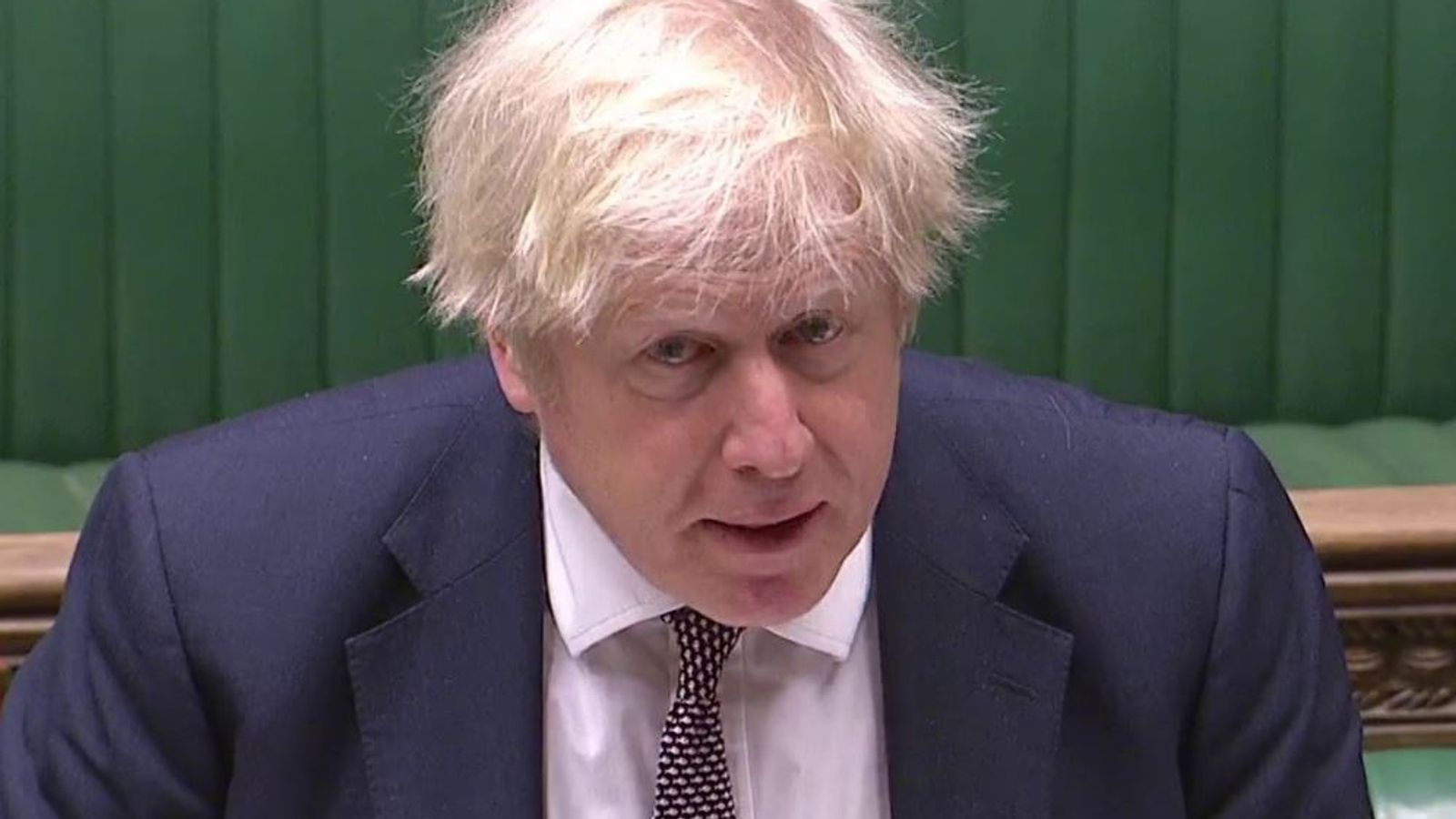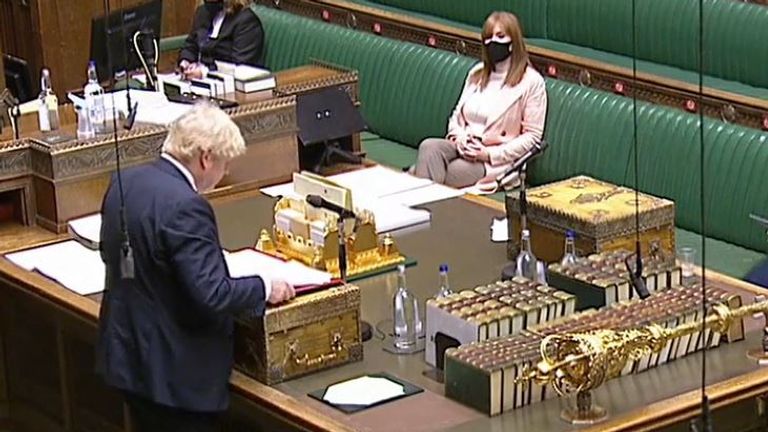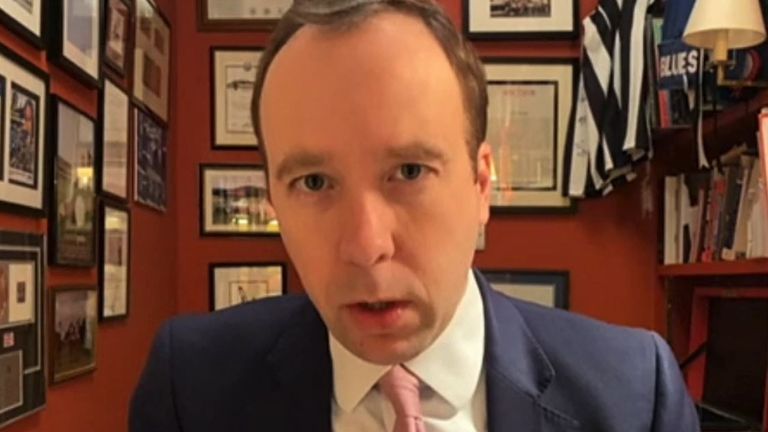Boris Johnson has told MPs that recent coronavirus restrictions “are starting to show signs of some effect” – but he refused to rule out even tougher measures.
The prime minister came under fresh pressure from Labour on Wednesday to tighten COVID rules in order to drive down infections.
Live COVID updates from UK and around the world
Labour leader Sir Keir Starmer, addressing Mr Johnson at the first session of Prime Minister’s Questions this year, said the current lockdown in England was “not strong enough”.
“Every time there’s a big decision to take, the prime minister gets there late,” Sir Keir told MPs.
“The next big decision is obvious, the current restrictions are not strong enough to control the virus.
“Stronger restrictions are needed.”
Responding to the reaction of Conservative MPs, Sir Keir added: “There’s no point members opposite shaking their heads, in a week or two the prime minister is likely to be asking members to vote for this.”
He then asked Mr Johnson to explain – with COVID infection rates, hospital admissions and death rates higher than the first lockdown last year – “why on earth are restrictions weaker than last March?”
The Labour leader has previously pointed to how nurseries remain open and how house viewings can continue, as examples of how the current lockdown – England’s third national shutdown – could be strengthened.
In reply to Sir Keir, Mr Johnson said: “We keep things under constant review and we will continue to do so.
“And certainly if there is any need to toughen up restrictions, which I don’t rule out, we will of course come to this House.”
However, the prime minister told MPs that the lockdown measures – and the Tier 4 restrictions that preceded then in many areas of England – are “starting to show signs of some effect”.
“We must take account of that too, because nobody can doubt the serious damage that is done by lockdowns to people’s mental health, to jobs, to livelihoods,” Mr Johnson said.
He accused Sir Keir of having “absolutely no other policy except to plunge this country into 12 months of lockdown”.
The prime minister and Sir Keir spoke in the House of Commons at the same time as First Minister Nicola Sturgeon announced the tightening of COVID rules in Scotland – including a ban on drinking alcohol outside in some areas, and the limiting of click and collect services.
Mr Johnson also faced a demand during PMQs to set out the point at which lockdown measures in England would begin to be lifted, once the most vulnerable had been given vaccines.
Conservative backbencher Julian Sturdy urged the prime minister to “consider drawing a line in the sand in terms of vaccination of sufficient numbers of the priority group – the reaching of which will trigger a phased relaxation of controls as immunity widens”.
Mr Johnson replied: “I can confirm that we’re going to go down the top four priority groups who account for 88%, sadly, of COVID deaths.
“The target is, as he knows, by 15 February there will then be an opportunity to look very carefully at the measures that we have in place and we’ll try to reverse the restrictions as soon as we reasonably can in a way that doesn’t involve overwhelming the NHS.”
Subscribe to the Daily podcast on Apple Podcasts, Google Podcasts, Spotify, Spreaker
Earlier, Health Secretary Matt Hancock told Sky News it was “impossible to know” how long current COVID restrictions might be in place for.
Mark Harper, the chair of the COVID Recovery Group of Conservative backbenchers, has suggested that from 8 March – giving three weeks for those 15 million of the most vulnerable to develop significant immunity to coronavirus – the government should begin to lift “severe” restrictions.
But, asked about that timescale being proposed by Tory MPs, Mr Hancock replied: “Well, great. But I’m the health secretary.”
Professor Anthony Harnden, deputy chairman of the government’s advisory Joint Committee on Vaccination and Immunisation, told Sky News that COVID measures will be needed “for a while yet”.
“We must be very clear that vaccination will prevent disease in individuals but it may not prevent those individuals from transmission to others,” he said.
Meanwhile, England’s deputy chief medical officer, Professor Jonathan Van-Tam, dismissed suggestions the “two-metre rule” could be increased to three metres.


